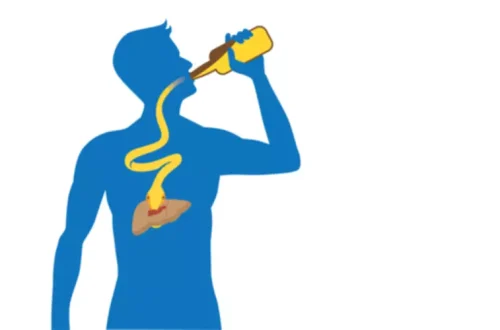
It’s essential to be patient, kind to oneself, and celebrate even the smallest victories along the way. With determination, support, and professional guidance, individuals can overcome alcoholism and lead fulfilling, sober lives. The treatment journey is unique to each individual, and what works for one person may not work for another. It’s crucial to consult with healthcare professionals or addiction specialists to determine the most suitable treatment approach for you or your loved one. When it comes to alcoholism, seeking help and embarking on the path to recovery is crucial.
Heavy alcohol use for long periods can lead to alcoholism, which can eventually be terminal.
Cirrhosis causes digestive issues9 and skin problems, and can even affect your mental health. Private, 6-bed luxurious facilities treating addiction and co-occurring mental health with a customized whole-person approach in Marin County’s rolling hills. Blending modern and traditional approaches, a residential treatment center addressing substance use disorders with equine therapy in Scottsdale, Arizona. Alcohol misuse and addiction can have harrowing and hazardous side effects at every phase. Effective, evidence-based treatment alcoholism and anger can help and recovery is possible. If someone increases their drinking significantly, there could be a problem.
Other Stages of Alcoholism

The longer you spend drinking heavily, the greater your risk of this condition. End-stage alcoholism is the final, most destructive stage of alcoholism. Typically, an individual reaches end-stage alcoholism after years of alcohol abuse. At this point, people who have spent years drinking may have developed numerous health and mental conditions in addition to their alcohol abuse. Major organ damage and failure often occur during this time, as well as interpersonal consequences like isolation and job loss.

Physical Effects and Deterioration in End-Stage Alcoholism
The safest course of action is to seek treatment in a professional environment that is catered to the individual needs, preferably with holistic treatment. The primary way a person with early-stage alcoholism differs from someone in middle-stage alcoholism is that alcohol is no longer leveraged for a quick high. In the middle stage, drinking may become a staple of daily life. The early or adaptive stage of alcoholism marks the beginning of an alcoholic’s struggle with addiction.
- After ongoing heavy use, the body may develop a physical dependence.
- With determination, support, and professional guidance, individuals can overcome alcoholism and lead fulfilling, sober lives.
- When a person with alcoholism reaches end stagealcoholism, they have reached a point that is dramatically different from the initial stages.
- Alcohol may be a form of self-medication for people with depression.
Attempts to stop drinking can result in tremors or hallucinations, but therapy, detox, and rehab can help you get your life back. For example, a person with frequent episodes of severe depression may turn to drinking to self-medicate. People who frequently drink are more likely to experience episodes of depression, and they may drink more in an attempt to feel better. Major depression and alcohol use disorder are also co-dependent in women, research suggests. Women with depression are also more likely to engage in binge drinking.
Patient Care Network

Individuals should reach out to healthcare professionals, addiction specialists, or treatment centers to explore appropriate recovery programs. Treatment options may include detoxification, therapy, support groups, and medication-assisted treatment. By the time a person is in end-stage alcoholism, there can be no denying that drinking has taken over their life and damaged their health. Recovery will not be easy at this point, but it will be worth the work. Now is the time to line up support from addiction specialists, mental health professionals, friends and family, and others living with an alcohol use disorder. Stage four, also known as end-stage alcoholism, is when serious health conditions like cirrhosis of the liver, high blood pressure and alcohol-related dementia can develop.



